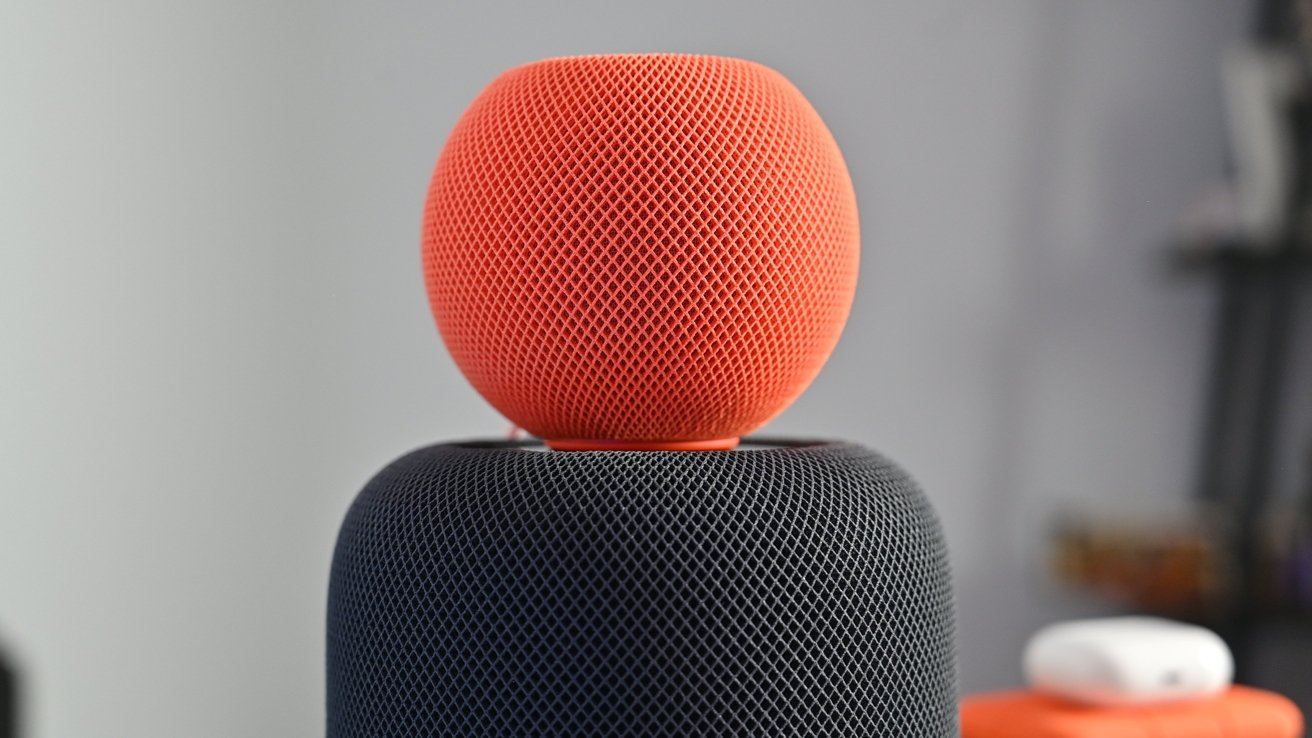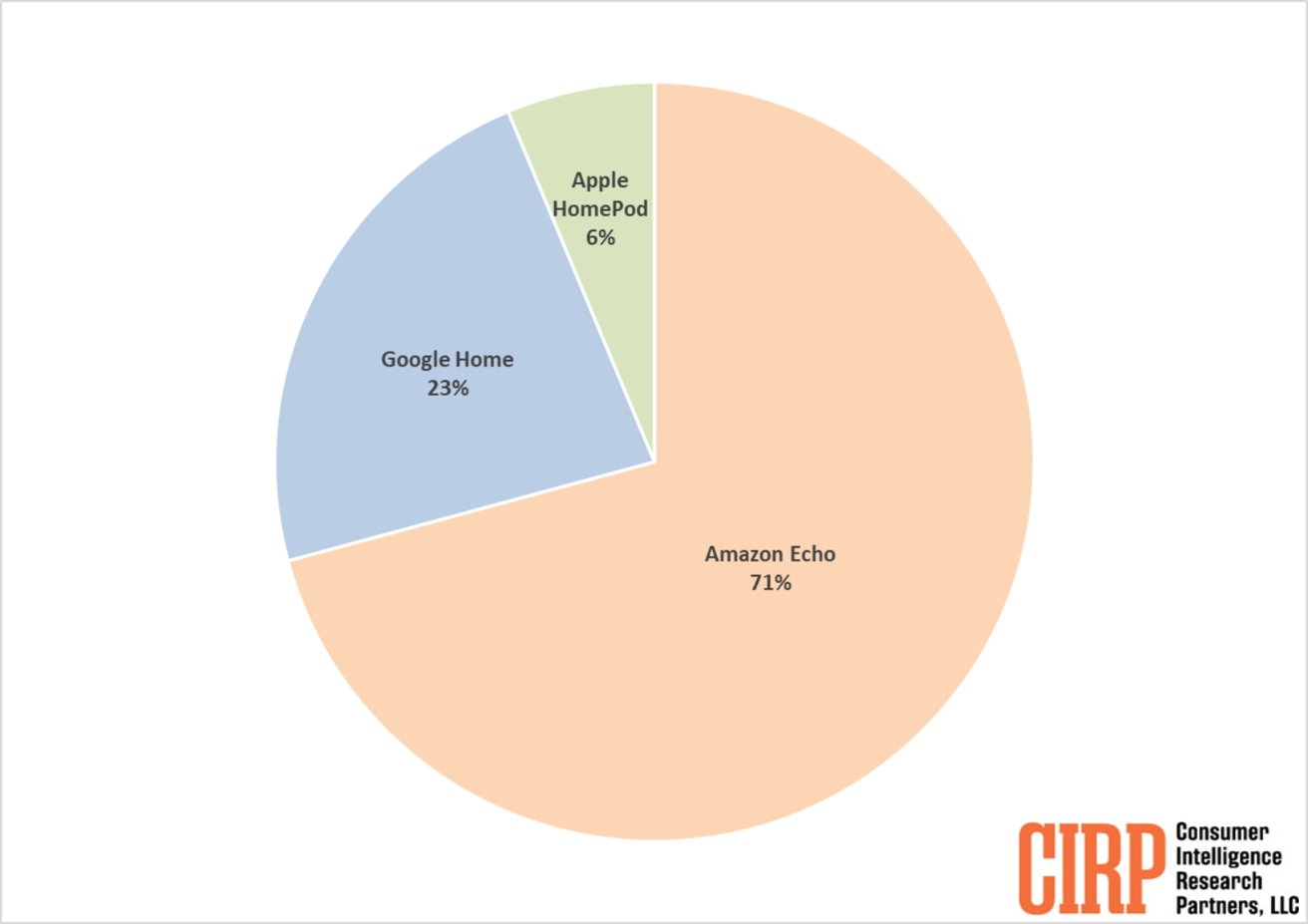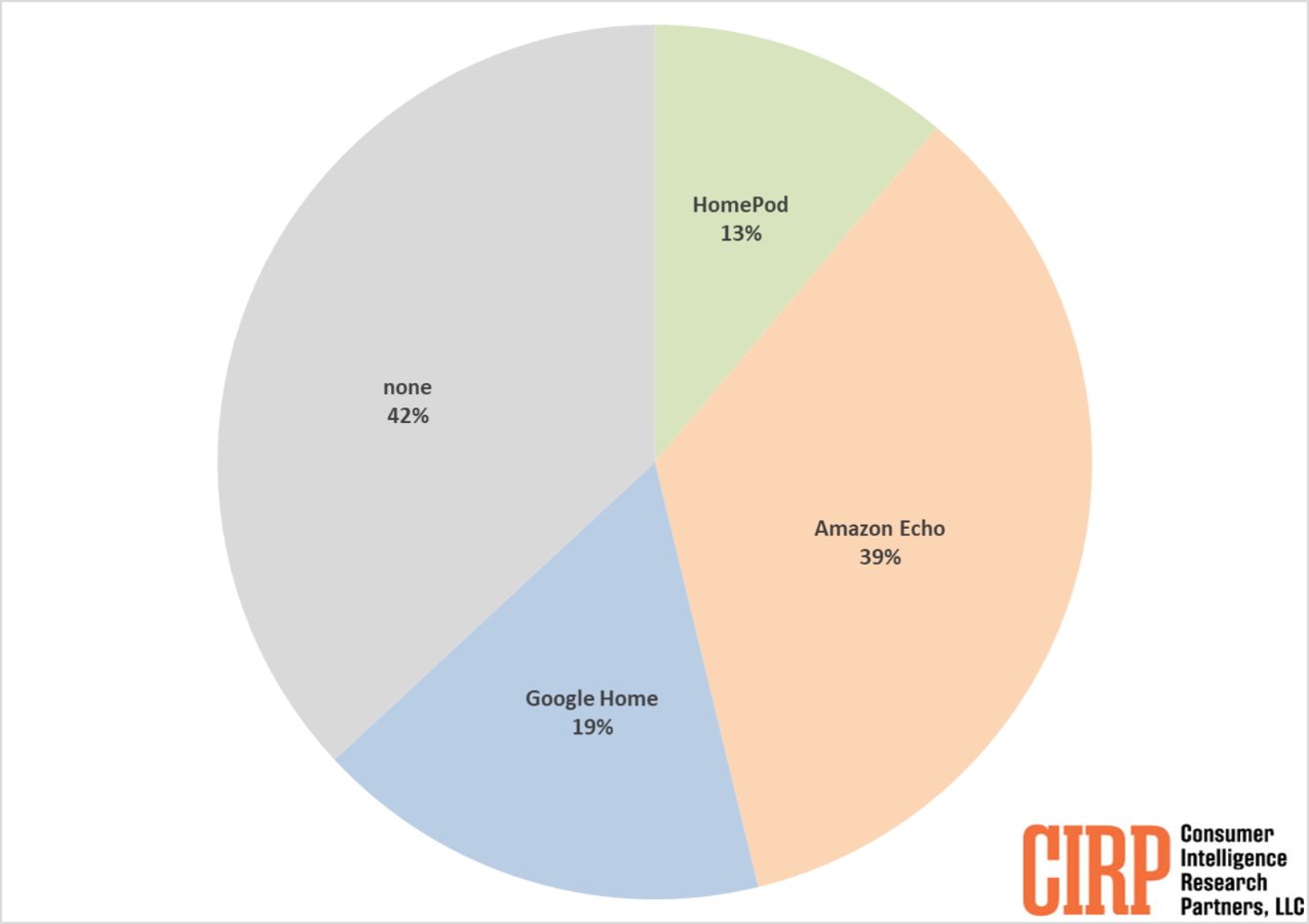Why Apple's smart home speaker dreams are still falling short
Despite Apple's dominance in consumer tech, its smart home speaker strategy is lagging behind Amazon and Google. But the company has a new strategy.

HomePod and HomePod mini
Apple, a leader in smartphones, tablets, and wearables, has struggled to replicate its success in the smart home market. Recent reports show that the company's smart home offerings struggle to secure a significant market share.
Apple's woes with smart speakers are particularly evident, with Amazon's Echo series and Google's Home devices dominating the market. A Consumer Intelligence Research Partners (CIRP) survey reveals that Amazon's Echo commands over two-thirds of the U.S. market, while Google holds about one-quarter.
Despite its claims, Apple's HomePod only has a 6% market share, significantly lower than its competitors. Moreover, 40% of Apple device owners who have purchased iPhones, iPads, Macs, or Apple Watches in the past year also own an Amazon Echo, while 19% own Google's smart speakers.
Apple's HomePod has only 13% of customers, indicating it's losing to competitors and failing to attract its most loyal users.
The ecosystem dilemma
The entrenched nature of smart home ecosystems, with Amazon and Google's more extended history and broader device integration, poses a challenge for Apple. Platform stickiness, similar to iOS vs. Android, hinders Apple's progress.

Percentage of smart speaker owners who purchased a device in the twelve months leading up to June 2024. Image credit: CIRP
Smart home users stick with their setups, and Amazon and Google's interconnected platforms seamlessly integrate with third-party devices. Apple struggles to introduce better integration without convincing users to overhaul their arrangements.
The company's cautious approach, the high price, and the limited functionality of its first HomePod hindered adoption. Its focus on premium devices with tight ecosystem integration didn't translate well in the smart speaker market.
Apple's HomeKit platform faced challenges due to strict requirements for third-party accessory makers.
Apple's new strategy
To address these challenges, Apple is enhancing its HomePod line with broader accessory support, improved integration with Apple Intelligence, and possibly a screen-based home device. The company refines its HomeOS software for a seamless smart home experience but faces challenges in making significant inroads.

Proportion of Apple customers who own a smart speaker during the twelve months leading up to June 2024. Image credit: CIRP
The smart home market levels off with fewer groundbreaking innovations. Many users prefer smart speakers for streaming music or checking the weather over complex home automation systems.
Apple needs compelling use cases to convince consumers to invest in its ecosystem. Despite planned improvements, the company faces a challenging battle in the mature smart speaker market.
Amazon and Google lead with an extensive head start. The question is whether Apple can offer something truly different to distinguish itself.
Read on AppleInsider

Comments
"Echo speakers are the type of business success companies don’t want: a widely purchased product that is also a giant money loser." https://www.wsj.com/tech/amazon-alexa-devices-echo-losses-strategy-25f2581a
The truth is that Amazon's whole Alexa hardware business has been a money-losing black hole since it debuted, with over $25 billion in losses just between 2017-21. The WSJ couldn't even assess losses before or after those years. It wasn't supposed to be this way. The idea was that Amazon would sell Alexa hardware at a loss, grab market share and--once Alexa was firmly entrenched in millions of American homes--make up those losses through Alexa becoming an indispensable shopping assistant and engine of additional purchases through suggestions, etc. This is what Amazon calls Downstream Impact or DSI. Well, Amazon got the market share it wanted by selling hardware at a loss, but the DSI never appeared. Now Amazon is rumored to be going to a paid Alexa subscription model to help recoup losses on future sales. Needless to say, this has never been nor will it ever be the Apple way: grabbing market share by selling hardware at a loss. Alexa hardware isn't a business--it's a loss leader that generates nothing to make up for its losses. It's what the Costco $1.50 hot dog would be if everyone just bought the hot dog and then left the store.
But there's more to Apple's home speaker problem than this. I'm shocked that AI didn't call out the elephant in the room: Siri sucks. I'm a 100% Apple guy, except when it comes to smart speakers, where I have Alexa Dots scattered around my apartment. I'd happily replace them with HomePod Minis except that Siri sucks. And it now seems we'll have to wait til March to find out if the Apple Intelligence version of Siri doesn't suck anymore. We shall see.
The one HomePod mini I own is in the bedroom. It also answers questions when I’m in there, but it is mainly used for an alarm clock and weather checker. Once in a while I will ask Siri to play some music on all the HomePods, and it does that.
I pray that the Apple Intelligence "Super Siri" comes to the HomePods when it drops in a few weeks in iOS 18.1! At least I do get a kick out of listening my wife arguing with her at times too lol.
This one for the semi-relevant laughs though: https://fb.watch/vfIYQpU3UI/
It now is the ONLY Apple product that sits on the shelf - unused. The TV built-in speakers sound better, play louder in the downstairs room (my hearing isn't what it used to be). And for the money, I can get a pretty decent soundbar with Sub at Costco - especially with Black Friday just around the corner.
I WANTED to love the HomePod, at $300 it should rival or beat anything in it's price range; it's more of an inconvenience than of practical use. I wish that wasn't the case.
I will say that there is a volume difference when you double up with a HP pair -- two sound much louder than one.
it’s crappyness didn’t stop my buying one at 50% discount though. Sound is ok but Siri is absolutely abysmal, like a D grade student who gets held back to do 3rd grade year after year after year after….
In addition, Amazon gives Alexa to any company that wants to integrate it into a device. Google does the same. How many Alexa-capable devices are in your house but never used for Alexa? I have nine Sonos speakers, each with Alexa—are those counted as Alexa devices in these charts?
I gave our old echo dots to the kids, seeing as they are young and don't really care about sound quality.
Also, one major annoyance, at least for me, is when I ask for certain songs. Siri starts playing it and it's by a different band to what I want. Fair enough, sometimes the same song name exists with different bands. So, I tell Siri that I do not like this version and then ask specifically for the song with the band of my choice. Not once, despite the fact that I must have told it close to 100 times that I do not like a version, does it just ignore it and go with what should obviously be my choice.
Who knows, perhaps Apple Intelligence will actually make Siri usable. It's just a shame that Apple will not bring it to the existing HomePods forcing people to shell out ridiculous amounts of money for a voice assistant that should have worked in the first place...
https://www.nngroup.com/articles/intelligent-assistant-usability/
As one user put it, “Alexa is like an alien — I have to explain everything to it… It’s good only for simple queries. I have to tell her everything. I like to simply ask questions, not think [about how to formulate questions].”
I’m in the same boat as you. We have 7 HomePods throughout the house and use them every day with almost no issues. Occasionally I will get the “ask again from your iPhone” but that happens less and less. Follow-up questions haven’t been an issue for years and years.
However, I have noticed that Siri seems to be inconsistent between users. A few times on these forums I have seen people post screenshots of “Siri fails”. When I ask the same question, worded exactly the same way on my iPhone I’ll get the correct and expected answer. It’s odd to me that 1) this happens at all and 2) that it still seems to happen. My guess is that people who have a poor Siri experience on their iPhone also have a poor Siri experience on their HomePod, and neither should be happening.
Yeah, I have a couple of friends that have Echos in their homes. It isn’t uncommon for one of them to tell me about how his “robot assistant” screwed up again. Usually it’s when he’s asking for it to play music and the music he gets is very different from what he asked for. The other friend raves about her Echos but when I visit her she is constantly yelling at it, “Alexa stop! Alexa stop! ALEXA STOP!” as if it has a hearing problem. It also makes mistakes and does things that are not what she asked. I remember one time in particular where she asked for a weather report and it instead set a timer. Huh?
Anyway, yes, all the assistants have good points and bad points and at this point none of them are a shining example of what we want them to be.
Does the business model of the company that we are buying into, not warrant any mention at all from a tech journalist?
I think Apple still have the beginnings of a really good product/system though.
- My wife has a routine called “Good Morning” routine which 1) gives the weather forecast 2) plays interesting facts from the This Day in History skill 3) plays headlines from “good news” skill. I have tried in vain to replicate this with Apple Shortcuts. It cannot be done
- We use another skill from a 3rd party that allows us to play a style of independent music only found on that skill. Again… this cannot be replicated on a HomePod because HomePod doesn’t allow (or easily allow) developers to create skills for it.
- We regularly use Pandora and Spotify. Pandora works on HomePod, Spotify does not.
- As stated many times in other comments, Siri on our phone is constantly trying to send us results to our questions on Safari. Many times she does this on the simplest of questions. Whereas Alexa just answers the question.
At this point I think they should just scrap HomePod and come up with something new. Like an affordable touch screen mini iPad. Something that developers can develop for. Something that plays Spotify. Something that runs Apple Intelligence so that Siri works. And something that has “routines” which can stitch “skills” together. I put quotes around “routines” and “skills” btw so that Apple can re-brand them with its own catch phrase. 🙂
i just have a beat pill (2024) and it also rocks for outings.
never had Amazon or Google’s to compare.